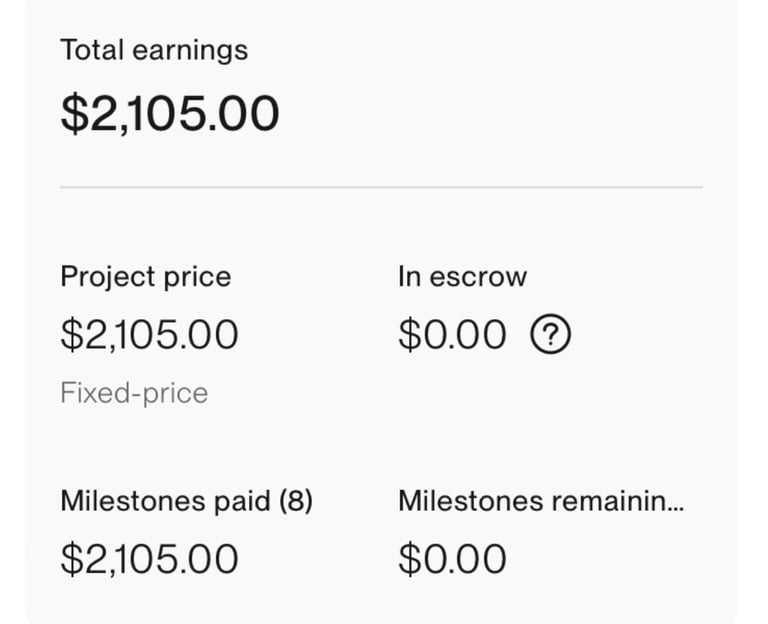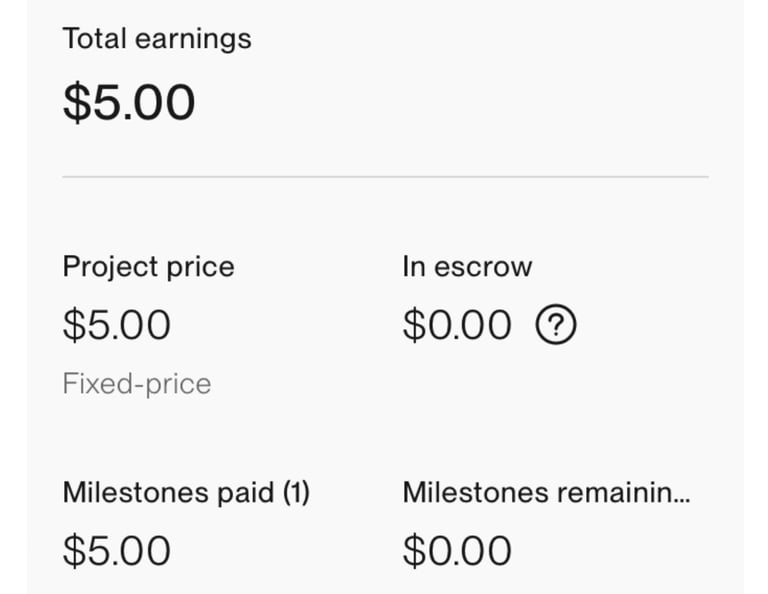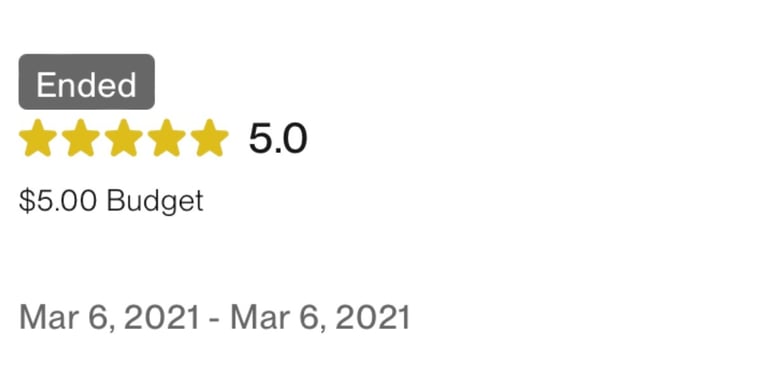How to Make Money Online as a Translator
Are you wondering how to make money as a translator. Here is the ultimate guide for you who want to start your career as a translator. I give you my tips of my first gig!
TRANSLATORMAKE MONEYFREELANCINGTRANSLATIONBUSINESS


Don’t underestimated your bilingual or multilingual skill. That’s valuable. If you are fluent in more than one language, passion for words and have a keen eyes to detail, becoming a translator can be a good start for your career from zero and work directly at your comfort zone while wearing pajamas.
But how exactly a translator can make money online? I will break down the process here for you, from acquiring the necessary skill to marketing yourself.
If you really just start it, then your first goal might be to find your first client. But, if you are already start your translation business, you might be wondering how I can scale it up. Whether you are just want to start your translation career journey or enhance your current existing translation business, I would like to share this comprehensive guide to you.
$2k in 7 weeks/$300 in 5 days working
The big fish I’ve got
One of my best accomplishments as an Indonesian translator. I earn $2,105.00 in just seven weeks with just my laptop. It’s a fair price but hard work.
The project was MTPE (Machine Translation Post-Editing) with 1000 sentences of up to 20 words long. The task required careful attention to detail to ensure the final text was accurate.
Why its hard? Because I do it manually, while actually using Trados can be more effective (they say). I was trying to use Trados too for my professional journey as a translator but you have to pay for it. And after try their free trial, I am like, “hmm, no”. Trados is might be an investment for some translators but for me, a translator who just start the path prefer to say “pass” to this one.
And for you, let’s take this information below.
Understanding Your Role as a Translator
We all know a translator have a role to convert written text from one language into another. But, you have to know why client need you instead machine translation. They need you to preserve the original meaning, tone, context, emotion, or even the level of politeness (some language like Japanese has this term). Client need you to be the human who are able to pass this element of their text that machine can’t do.
Doing the translation job is not simply about replacing words, it requires a deep understanding of both language and culture.
Some scope of translation work you have to know exist;
General translation: translating everyday documents, it could be basic content, emails, or letters where you need no special knowledge.
Technical translation: translates manuals or technical documents where you need to specialize the subject and terminology.
Legal translation: involves translating legal documents and requires you understand and accurate with the legal system in both languages.
Business translation: translates corporate related materials like presentations or reports and mostly delivered in formal way.
Literary translation: do the translation of books, stories, or poems which require you to preserve the style and artistic nuance.
Medical translation: involves translating medical documents and research which need you to be an expert in medical terminology and protocols.
Website and software localization: not just translation but you need to localize the content with considering the language, culture and technical in order to fit the user experience.
Financial translation: you need to have in-depth knowledge of financial terms to translate the financial reports or documents.
Multimedia translation: from movies to games, you will focus more on translating audiovisual content which require attention to timing, cultural context, and format constraints.
Marketing and transcreation: you need to be creative to adapt the same emotions as original for the content.
Academic and scientific translation: involves translating academic and research papers which need expertise in related field.
Tourism and travel translation: translates content about travel with informative and engaging tone without losing the cultural sensitivity.
E-commerce translation: translating product descriptions and online store content.
Political translation: translates political content which need strong awareness in politics.
Religious translation: translating religious text with need a deep knowledge of religious stuff.
By knowing those different types of translation field, can help you to determine which field you would like to explore or expertise that suits your interests. Its not only badge you with “professional translator” title but also an expert who is more attractive to clients.
Don’t Missed the Essential Skill a Translator Should Have
Having a passion for language isn’t enough to succeed as a translator. Here is a specific skill set you need to develop:
Language proficiency is the foundation of your translation career. You need to be fluent in at least two languages (both source and target language). Me: English (fluent) — Bahasa Indonesia (native).
Research skills are needed as a new translator often finds unfamiliar terms or contexts. You need to dig deeper to ensure the accuracy.
Attention to detail is also critical. How many typos have you found on the internet? What does it feel like? Annoying, I know. What if the small error alters the meaning? It might cause misunderstanding. Critical.
Cultural awareness is also needed to convey the meaning, idioms, and tones. Translation goes beyond words.
Self-confidence needed as sometimes you will face “which word I should use?” And the right decision has to be made by you, the language expert.
The good news is you can set this aside, if you already did some translation project. But if not, dig your interests and start your own trial project (you can also use this for portfolio if you have no working experience).
Those skills will help you to produce high-quality translation. And high-quality leads to more opportunities.
Getting Qualified as a Translator
Formal qualifications are not always necessary for you to start a translation career. However, significantly boost your credibility. These are some options to get qualified!
Translation course. There are so many online platforms nowadays such as Udemy, Coursera, etc. You can use these courses to build foundational knowledge.
Certification. If you can get a certification from a reputable organization, it can be useful when you are competing for clients or contracts. Certificate demonstrates your competence and professionalism.
Degree programs. There are some universities that offer degree programs in translation or interpretation. Even if it’s not majoring in translation, you can take class to learn foreign language or in my case, I graduated from the Japanese Language Department at one university in my country. This can provide a strong academic foundation for you.
You’re not only improving your skills when chasing for qualifications but also trust with potential clients and employers.
How to Build Your Portfolio while You Haven’t Start Any Project Yet?
A strong portfolio is essential to showcasing your work. Whether it will attract clients or not.
But what to do when you have no working experience? Create one.
Create a sample of your translations.
Don’t worry if you have no any client work yet, you can create samples. You can create the samples for one fields or more. I mean, if you already decide to focus in only one field, that’s totally okay. Even if you decide to create two or more samples, that’s also fine. Choosing one field is short work and you can focus on it while two or more samples need more of your time to create it but it useful to identify which one you’ll love the most.
Volunteering and done a project.
There are so many people need your translation skill, moreover those who run non-profits or community organizations. You can offer your service to them for free or usually they are look for translator volunteer. You find them or either they find you, this experience will help you to build your credibility and expands your portfolio.
Presenting Your Work Professionally.
You can presenting your professional work with table. Create a table in any platform you like. Then make sure to format your samples neatly, present the source text and translation of target language side by side. This gives potential clients a clear view of what you capable of.
A well organized portfolio will help you stand out in a competitive market.
Find Your First Translation Work
Once you are confident with your skills and have built your portfolio, the next step is to find clients.
In this point, I reveal my secret to my first gig. Here you go!


I was hanging around on Upwork for a month until this client pick me up. It was strings translation for an app. The job was just posted at 2 AM (my time), people are mostly on their dream, sleeping. I am the first person applying to his job post.
I got hired, finish the translation work and that’s how I got my first payment. Small project. But get paid with dollar is a joy. $1 equal to Rp14,700 at that time. I am not just happy but satisfied.
If you are totally new, you know what to do if you are start your journey. Be the fastest, do great with the job, and don’t aim for the big fish just yet.
Here are several ways you can find your first client.
Freelance Platform
Freelance platform is the best cause they are free to start. You can go to website like Upwork, Fiverr or Freelancer which are platform where you can meet clients. What you have to do is sign up to their platform and follow their instruction until your profile ready.
Each platform has different interface and rules, so make sure you learn about that first.
Job Boards
Check websites like Glassdoor, Indeed, or any other specialized job board. These sites can find you a job vacancy at your place. They have list both full-time and part time position that you can apply for. Who knows you can find one there.
Translation Agencies
An agency often have steady flow of clients and projects. Try to find one and partner up with an agency or multiple agencies can help you to find translation work.
Social Media and Online Communities
LinkedIn is on top of social media you can use to find translation job. In other hand, you can also utilize X (Twitter) or translation focused forums to network with potential clients.
Set Rate for Your Translation Service
Setting rate is the most challenging aspect for many translators. Question of how much you will charge your client will be confusing if you don’t haven’t set your rate. Determining this one is hard, you wont your rate too low as you’ll lazy to work for it and you wont your rate too high, it scare clients away and find other cheaper translator than you.
So, what best thing to consider when it comes to set your rate as translator? Here they are:
Experience Level
If you are new translator, start with low rate to build your client base. Once your portfolio and experience grow, then increase your rate gradually.
Type of Translation
If you familiar with terms in certain translation field like medical or legal, you can set higher rates due to their complexity. It need specific knowledge and just certain people can do.
Do Market Research
Research how much rate of other translator or your competitor in your niche. Find their profile and see how much they charge. Or sometimes, you can reach them out through their professional profile to ask their rate. You don’t want lowering your rate but staying competitive is key.
Determining the right rates requires balancing of three elements, experience, expertise, and market demand. Once you are connected with the client through a platform you can decide whether your rate is negotiable or fixed. If your rate negotiable, then tell the client (means you should put higher rates on your profile), make a deal.
People pay cheaper for Indonesian freelancers not because we have a low quality but many translators prefer to give their low rate as long as they get the project.
Market Yourself as a Translator
Translation skill is service that you need to market. Market yourself with some strategy to help you stand out.
I am not suggest you to create a professional website if you just start or want to start your translation journey because it will cost you a lot. Instead, by signing up to a free freelancer platform or job board is more than enough to start.
But a great thing you can do is go door to door. Door to door method in marketing is never die. And we are now lucky that people move their house to internet. You can reach them in their YouTube channel or any other media social media like Instagram, Facebook, TikTok, etc, whenever they spend most of their time.
Effective marketing increases your visibility and have more chance to attracts clients. Finally, helping you grow your translation business.
Never Stop Learning


Learn until you die. World keep changing everyday and so the translation industry. Now, we can work more efficiently with tools and certain techniques. Working at this stage is not in a “work hard” mode again but “work smart” and finish the project 10x faster.
Attend workshops and webinars regularly can keep you up-to-date with the latest trends. Specialize in a niche will help you dig your knowledge deeper and paid with higher rates. Don’t just leave the room without asking for feedback from your client. All those things will help you improve and secure your translation path for long-term.
In Conclusion
Making money online as a translator is not impossible. What you need are the right skills, qualification, and dedication. By understanding the role, have a portfolio to showcase, know where to find clients, and keep learning, anyone with bilingual or multilingual skill can be success in translation career. Whether you aim to work freelance or full time, the key is to stay passionate and proactive about your craft.
So, if you love languages and want to make advantage of it for living, then start it now and explore the translation industry world!

